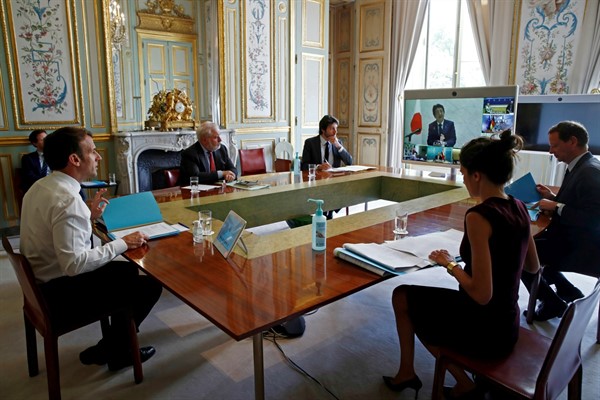When does a global catastrophe stimulate a revival of international cooperation, rather than accelerate fragmentation and disorder? When does a crisis become a turning point in international relations, rather than just augur more of the same? These questions loom large in the COVID-19 pandemic, the biggest shock to world politics and the global economy since 1945. While history provides no definitive answers, it hints at three preconditions for resurrecting international cooperation from the ashes: new thinking, enlightened leadership and a favorable distribution of power.
It was in reaction to World War II, and the economic chaos that preceded it, that the United States laid plans for an open, rules-based postwar international system. The political and economic foundations for this liberal and cooperative world order were set during wartime conferences at Dumbarton Oaks, in Washington, D.C., and in Bretton Woods, New Hampshire. The former produced plans for the United Nations, a new global body to promote peace and security, endorsed by 50 nations in San Francisco on June 26, 1945—75 years ago last Friday. The latter created two new multilateral institutions, the International Monetary Fund and the World Bank, to promote financial stability, wartime recovery and global development. Although negotiations for an International Trade Organization failed, a new multilateral trading system emerged through the General Agreement on Tariffs and Trade, which later became the World Trade Organization.
Not all global catastrophes have such a fortunate resolution. The great slaughter of World War I resulted in a peace at once Carthaginian and inconclusive: harsh enough to embitter Germany but not so severe as to prevent its resurgence. The League of Nations, created in 1919 to deter and punish aggressors, failed to do either and faded into irrelevance as fascism and militarism ran rampant in the 1930s. Likewise, the Great Depression elicited little international cooperation, as the world’s most powerful economies adopted a slew of discriminatory, protectionist and beggar-thy-neighbor policies, typified by the Smoot-Hawley Tariff in the United States in 1930 and the British system of Imperial Preference established in 1932. The London Economic Conference of 1933 intended to stabilize the world economy but failed thanks to U.S. intransigence. The resulting economic fragmentation prolonged the global slump and poisoned international diplomacy.

